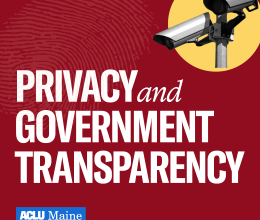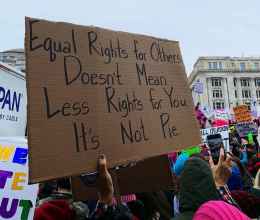Portland – In a unanimous vote late Monday night, the Portland City Council approved a ban on the use of face surveillance by the city and its employees. Portland joins cities and town in California and Massachusetts, including San Francisco and Boston, to ban the technology. This makes Maine the third state to have a municipality with a face surveillance ban.
“This is a big step forward in defending all of our civil liberties,” said Councilor Pious Ali, who first introduced the proposal in November 2019. “We are maintaining democratic control over a technology that is unreliable, racially-biased and a threat to democracy itself.”
Unregulated, governments and law enforcement can use face surveillance to track where individuals go and whom they associate with. This has implications for people’s ability to protest, and to engage in political and religious activities.
This technology is especially harmful for communities of color, which are already subject to over-policing and hyper-surveillance. A number of research studies have found that face surveillance technology is especially faulty at identifying Black people, transgender people, young people and the elderly.
The council approved an amended version of Councilor Ali’s proposal. The ordinance, as passed, did not preserve provisions that would have allowed individuals to sue the city and its employees if they violated the law, made certain evidence inadmissible in court, and set penalties for city employees who violate the law.
“The ability to sue to remedy a violation of the law and an invasion of an individual’s privacy is an essential part of enforcing the face surveillance ban,” said Michael Kebede, policy counsel for the ACLU. “While this ban is a major victory for Portland’s residents, it could have been even stronger if the City Council had passed Councilor Ali’s more robust version.”
The ordinance goes into effect in 30 days. In the meantime, Portland residents still have the opportunity to vote on a face surveillance ballot initiative in November, which would restore the enforcement provisions.









